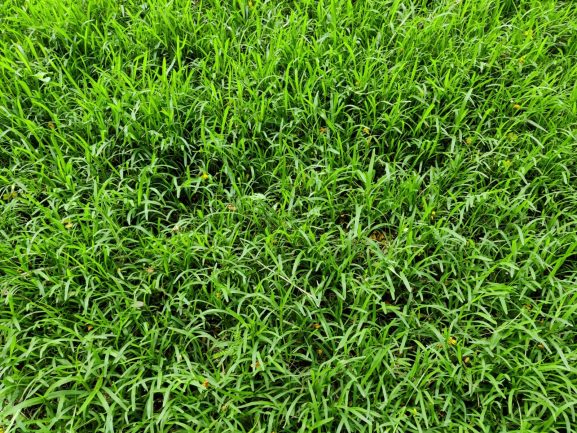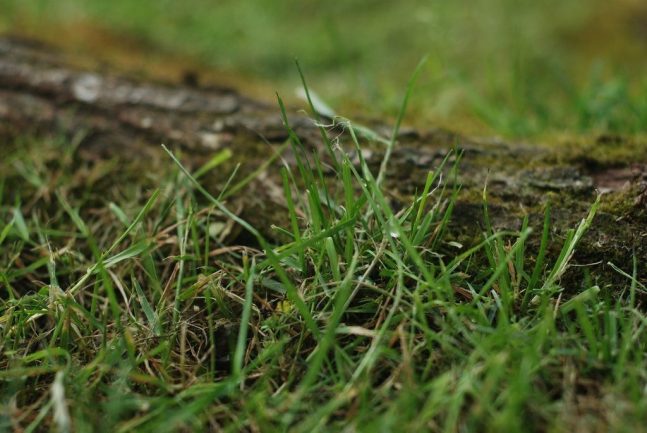Bermuda grass, recognized for its resilience and talent to thrive in numerous climates, is a well-liked alternative amongst owners and landscapers alike. Its reputation stems from its adaptability, making it an acceptable choice for each residential lawns and golf programs. Characterised by its nice texture and vibrant inexperienced coloration, Bermuda grass creates a dense, lush garden that may stand up to heavy foot site visitors and harsh environmental situations. This warm-season grass is especially well-suited for areas with scorching summers, the place its potential to stay inexperienced and wholesome beneath the solar shines.
Understanding Bermuda Grass Traits
Bermuda grass is a warm-season perennial that thrives in scorching climates. It grows quickly in the course of the hotter months, spreading by each seeds and underground rhizomes. This twin progress technique permits Bermuda grass to cowl giant areas shortly, making it a best choice for these seeking to set up a thick, hardy garden. The grass is drought-tolerant and might stand up to excessive temperatures, although it requires full daylight for optimum progress. Because of its aggressive nature, Bermuda grass can outcompete weeds, making a uniform and aesthetically pleasing garden.
Why Bermuda Grass is a Fashionable Selection

The recognition of Bermuda grass is not only resulting from its look but in addition its sturdiness. It could deal with the wear and tear and tear of on a regular basis use, making it perfect for areas with excessive foot site visitors, akin to playgrounds, sports activities fields, and backyards. Furthermore, Bermuda grass’s low water necessities and resistance to ailments and pests make it an environmentally pleasant choice. This grass can also be comparatively low-maintenance, requiring much less frequent mowing than different grass varieties, which appeals to owners searching for an attractive garden with out the effort.
When to Plant Bermuda Grass
Timing is essential in relation to planting Bermuda grass. To attain a lush, inexperienced garden, it’s vital to plant the grass in the course of the optimum time of yr, making certain the soil situations are excellent for germination and progress.
Optimum Planting Seasons for Bermuda Grass
Bermuda grass is greatest planted in the course of the heat seasons when the soil and air temperatures are conducive to its progress. The perfect time to plant Bermuda grass is in late spring or early summer season, after the final frost has handed. Throughout this era, the soil temperature constantly stays above 65°F (18°C), which is important for seed germination and root growth. Planting in late spring permits the grass ample time to determine itself earlier than the height of summer season warmth, giving it a powerful begin.
Greatest Months for Planting Bermuda Grass
For many areas, Could by July are thought-about the perfect months to plant Bermuda grass. Within the southern United States, the place the local weather is hotter, planting can start as early as April. In distinction, in areas with cooler climates, June and July is likely to be extra acceptable to make sure that the soil has warmed sufficiently. Planting throughout these months provides Bermuda grass the prolonged heat season it wants to determine deep roots and develop a thick, inexperienced cowl.
Concerns for Heat and Cool Climates
Whereas Bermuda grass is often related to heat climates, it can be planted in areas with cooler summers. Nevertheless, in cooler climates, it’s important to plant Bermuda grass in the course of the warmest a part of the yr. In northern areas, this may occasionally imply planting in late June and even early July. The purpose is to supply the grass with as many heat days as potential earlier than the cooler fall temperatures arrive. In areas with quick rising seasons, selecting quite a lot of Bermuda grass that’s extra tolerant of cooler temperatures may assist guarantee success.
Soil Temperature Necessities for Bermuda Grass
Soil temperature performs a pivotal position within the profitable institution of Bermuda grass. The minimal soil temperature required for Bermuda grass seed to germinate is round 65°F (18°C). Nevertheless, for optimum germination, the soil ought to be nearer to 70°F to 75°F (21°C to 24°C). Earlier than planting, it’s advisable to make use of a soil thermometer to test the temperature at a depth of two inches (5 cm). If the soil is simply too chilly, the seeds could not germinate, resulting in patchy progress. Then again, planting in soil that’s too scorching may stress the younger vegetation, so aiming for the candy spot in temperature is essential.
Making ready Your Garden for Bermuda Grass Planting

Earlier than planting Bermuda grass, correct garden preparation is crucial to make sure that the seeds or sod take root and flourish. This entails assessing and making ready the soil, making certain it has the proper vitamins, and utilizing the suitable instruments for the job.
Soil Testing and Preparation
Soil testing is a crucial first step in making ready your garden for Bermuda grass. A soil take a look at will reveal the pH degree and nutrient content material of your soil, which could be adjusted as wanted to create an optimum atmosphere for the grass. Bermuda grass prefers a barely acidic to impartial pH degree, ideally between 6.0 and seven.0. In case your soil is simply too acidic (pH under 6.0), you’ll be able to elevate the pH by including lime. Conversely, if the soil is simply too alkaline (pH above 7.0), sulfur could be added to decrease the pH. Moreover, the soil ought to be well-draining and free, so think about aerating compacted areas to enhance soil construction.
Excellent Soil pH for Bermuda Grass
Sustaining the right soil pH is essential for Bermuda grass as a result of it impacts nutrient availability. At a pH of 6.0 to 7.0, vitamins like nitrogen, phosphorus, and potassium are most available to the grass. If the pH is exterior this vary, the grass could battle to soak up these vitamins, resulting in poor progress. Common soil testing each few years can assist monitor pH ranges and make changes as wanted. Including natural matter, akin to compost, may assist buffer the soil pH and enhance its total well being.
Mandatory Vitamins and Fertilizers
Bermuda grass thrives on a balanced provide of vitamins, notably nitrogen, which promotes lush, inexperienced progress. Earlier than planting, apply a starter fertilizer that’s excessive in phosphorus to encourage root growth. As soon as the grass is established, a balanced fertilizer with a ratio like 16-4-8 (nitrogen-phosphorus-potassium) ought to be utilized each 6 to eight weeks in the course of the rising season. Gradual-release fertilizers are perfect as they supply a gradual provide of vitamins over time, lowering the danger of over-fertilization and potential garden injury.
Instruments Wanted for Planting Bermuda Grass
Planting Bermuda grass requires a number of important instruments to make sure even distribution and correct soil contact. For seeding, you’ll want a broadcast spreader to evenly disperse the seeds throughout the garden. A rake will allow you to calmly cowl the seeds with soil, and a garden curler can be utilized to press the seeds into the soil for higher contact. For sod, a pointy knife is helpful for reducing the sod items to suit, and a curler helps guarantee good soil-sod contact. Moreover, having a hose or irrigation system prepared is essential for maintaining the soil constantly moist after planting.
Planting Bermuda Grass from Seed
Planting Bermuda grass from seed is a cheap option to set up a brand new garden. Whereas it requires endurance and diligent care, following the right steps can result in a lush, inexperienced garden in only a few months.
Step-by-Step Information to Seeding Bermuda Grass
Put together the Soil: Start by clearing the realm of any particles, rocks, and weeds. Until the soil to a depth of about 6 inches (15 cm) and incorporate any mandatory soil amendments primarily based in your soil take a look at outcomes.Unfold the Seed: Use a broadcast spreader to evenly distribute the Bermuda grass seed over the ready soil. The beneficial seeding price is about 1 to 2 kilos of seed per 1,000 sq. toes.Cowl the Seed: Evenly rake the soil to cowl the seeds with a skinny layer of soil, about 1/8 inch deep. This helps shield the seeds from being washed away or eaten by birds.Water the Space: Instantly after planting, water the realm completely to moisten the soil. Proceed to water each day, maintaining the soil constantly moist till the seeds germinate, which usually takes 7 to 10 days.
How A lot Bermuda Grass Seed to Use
The quantity of Bermuda grass seed wanted relies on the scale of the realm you intend to cowl. As a normal rule, it’s best to use about 1 to 2 kilos of seed per 1,000 sq. toes. For areas with sparse protection, chances are you’ll need to use the upper finish of the seeding price to make sure a thick, uniform garden. It’s vital to measure the realm precisely and modify the seeding price accordingly to keep away from over or under-seeding.
Ideas for Even Seed Distribution
Reaching a good distribution of seeds is essential for a uniform garden. To do that, divide the seed into two equal components and apply one half whereas strolling in a single course, and the opposite half whereas strolling in a perpendicular course. This crisscross sample helps be certain that any missed spots are coated. Moreover, think about using a mechanical spreader for extra exact utility, particularly in bigger areas.
Watering Protocol After Seeding
After seeding, sustaining constant moisture within the soil is crucial for germination. Water the garden calmly and steadily, maintaining the highest 1 to 2 inches of soil constantly moist. Keep away from heavy watering, which may trigger seeds to scrub away. As soon as the seeds have germinated and the grass begins to develop, you’ll be able to step by step scale back the frequency of watering, however enhance the depth, encouraging deeper root progress.
Sod vs. Seed: Selecting the Proper Technique
When planting Bermuda grass, you may have two major choices: seeding or sodding. Every technique has its benefits and downsides, relying in your timeline, funds, and desired outcomes.
Execs and Cons of Seeding vs. Sodding
Seeding is less expensive and means that you can select from quite a lot of Bermuda grass cultivars. It additionally offers a better sense of accomplishment as you watch your garden develop from scratch. Nevertheless, seeding requires extra time and care, particularly in the course of the early phases of progress.
Sodding, however, offers an instantaneous garden. The grass is already established, so you’ll be able to get pleasure from a inexperienced, lush yard nearly instantly. Sodding is dearer upfront and requires cautious set up to make sure correct rooting. Moreover, sod could not at all times be obtainable within the particular Bermuda grass selection you favor.
Price Concerns for Every Technique
Seeding is mostly less expensive than sodding. The price of Bermuda grass seed ranges from $0.10 to $0.20 per sq. foot, whereas sod can value wherever from $0.50 to $1.00 per sq. foot, relying on the range and site. Whereas sodding is dearer, it may be definitely worth the funding should you want a garden shortly or are coping with erosion points.
Time Funding: Seed vs. Sod
Seeding requires extra time and endurance, as it might probably take a number of months for the grass to totally set up. Throughout this time, cautious watering, fertilization, and safety from weeds are mandatory. Sodding, however, offers speedy outcomes, with the garden being prepared for mild use inside a number of weeks of set up. Nevertheless, sod requires intensive watering in the course of the first few weeks to make sure the roots set up correctly.
















